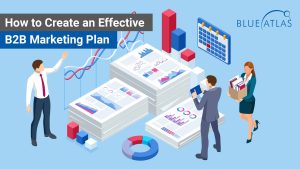
Advanced Shopware Plugin Development
Introduction
Creating plugins for Shopware requires a profound understanding of the platform’s design and adherence to best phones to guarantee versatility, execution, and practicality. Whether you’re expanding center functionalities or making custom highlights, taking after standardized approaches can essentially streamline improvement and move forward the end-user involvement. This direct highlights basic best phones for designers building Shopware plugins.
Understanding Shopware Architecture
Shopware features an innovative plugin system, which enables developers to add, alter or replace functionality without changing its core codebase. Developing a plugin is straightforward with Shopware providing a skeleton as a template; however, creating fully-functional plugins requires an in-depth knowledge of both front-end and back-end development considerations.
Understanding the role of Symfony Framework’s Doctrine Model in your plugin’s structure is paramount, while hardcoded paths or URLs should also be avoided as updates could cause them to change, leading to it not working as intended.
Understanding the API framework is critical to successfully connecting your plugin with external systems such as CRMs or ERPs, such as CRMs or ERPs. You should familiarize yourself with its RESTful nature, how to develop custom endpoints for data exchange, as well as its CLI commands that facilitate tasks like cache clearing, plugin installation and database migrations.
Setting Up the Development Environment
Some time recently jumping into Advanced Shopware Plugin Development, setting up an appropriate improvement environment is significant for streamlining your workflow and guaranteeing code consistency. A well-configured environment makes a difference. Maintains a strategic distance from compatibility issues and gives the establishment for successful investigating and testing.
- Install Necessary Tools and Dependencies: Begin by introducing basic devices like PHP, Composer, and Node.js, as they frame the spine of Shopware improvement. Guarantee your PHP adaptation meets Shopware’s necessities, regularly PHP 8 or higher, for ideal compatibility. Moreover, Composer is crucial for overseeing conditions, whereas Node.js is essential for building and compiling JavaScript and CSS assets.
- Set Up a Local Server or Docker Environment: Utilize a nearby server such as XAMPP or a containerized arrangement like Docker to imitate the generation environment. Docker is especially profitable because it permits for consistent setups over distinctive machines. With Docker, you’ll effortlessly turn up holders preconfigured with Shopware and related administrations like MySQL, Redis, and Elasticsearch.
- Download and Install Shopware: Get the most recent adaptation of Shopware from the official site or GitHub. Utilize the Shopware CLI to introduce and arrange it on your framework. This step guarantees that your advancement environment adjusts with the Shopware stage adaptation you point to target. Making a difference you dodge adaptation jumble issues.
- Configure Your IDE for Shopware Development: Select an IDE such as PHPStorm or Visual Studio Code and design it for Shopware improvement. Introduce expansions like PHP CodeSniffer for linting and investigating apparatuses for consistent improvement. Empower Shopware-specific coding measures and autocompletion highlights to make strides proficiency and keep up code quality.
- Set Up a Version Control System: Execute an adaptation control framework like Git to track changes and collaborate successfully. Initialize a Git store in your extension and interface it to a farther store on stages like GitHub or GitLab. This setup guarantees you’ve got reinforcements of your code and a streamlined way to oversee highlight overhauls or rollbacks.
Implementing Event-Driven Development
As Shopware employs an event-driven architecture, any new functionality requires code updates. Therefore, when creating plugins it is recommended that they use blocks instead of directly editing core templates as this will ensure future changes don’t affect them and cause issues with future plugin updates. Furthermore, it should also be ensured that each piece of functionality has its own dedicated plugin rather than lumping all together under one banner.
Experience with PHP is key to successful Shopware plugin development. From understanding its syntax and variables, data types and awareness of server-side scripting in general to proficiency with Symfony 5 PHP web framework and its dependencies – such as Twig template engine usage, Doctrine ORM functionality and ExtJS Grid Component usage.
Understanding Shopware’s APIs is crucial to creating efficient integrations. This means understanding how to store API-related information in plugin configuration files, employ authentication functions separately from each authentication function used, use Guzzle HTTP packages appropriately and handle API responses effectively.
Read More: Why a custom website is important to grow a business?
Optimizing Performance and Scalability
As Shopware is an advanced e-commerce platform, its configuration and optimization must be optimized for performance. This involves employing tools such as caching to limit data sent directly to users while increasing speed. Responsiveness; additionally, monitoring settings to maintain optimal performance even during traffic surges may be necessary.
Use of inheritance is crucial in plugin development to avoid overwriting core functions and to expedite development time and code maintainability. Relative paths in template creation also prevent conflicts with future Shopware updates.
Effective plugin creation in Shopware requires a thorough knowledge of its ecosystem. From familiarizing oneself with Symfony PHP web framework, Twig templating engine and Doctrine ORM database mapping software – to familiarity with APIs available for integration with external systems like backups and data synchronization tasks using cron jobs; furthermore it’s worthwhile utilizing them regularly as these can streamline processes while freeing up time for more urgent matters. It is also necessary to conduct thorough testing. Debugging procedures as this include unit/integration as well as staging environment testing – to eliminate bugs or errors before being released on production environments.
Documentation and Maintenance Practices
Apart from meeting technical requirements for Shopware Plugin development. best practices should also be adhered to for optimal performance. These include adhering to coding standards and providing appropriate documentation as well as performing extensive testing and debugging before releasing the plugin for use.
Shopware Plugin developers should always keep scalability of their plugins in mind when developing them. By keeping their designs lightweight and using inheritance to override core functionalities. Developers can ensure their plugin is capable of evolving alongside their website without negatively affecting performance.
Plugins are an invaluable way of expanding the capabilities of an online storefront. Adding extra functionality that meets specific business needs and helping companies expand. Their benefits range from customizing frontends. Integrating with different software to providing additional features to meet specific requirements of an enterprise. However, developing plugins comes with several challenges. Particularly when they integrate with third-party systems like CRM platforms. ERP software, or marketing tools – it is therefore imperative that these plugins feature strong front-end designs as well as robust back-end architecture design to ensure their uptime and security concerns are met effectively.
Conclusion
Following the best homes in Shopware plugin advancement guarantees high-quality, viable, and secure arrangements that coordinated consistently with the stage. By taking after coding measures, leveraging Shopware’s APIs viably, and prioritizing execution and adaptability. Engineers can make plugins that improve client involvement and meet trade needs. Ceaseless learning and keeping up with Shopware overhauls are significant for long-term victory in plugin development. More







